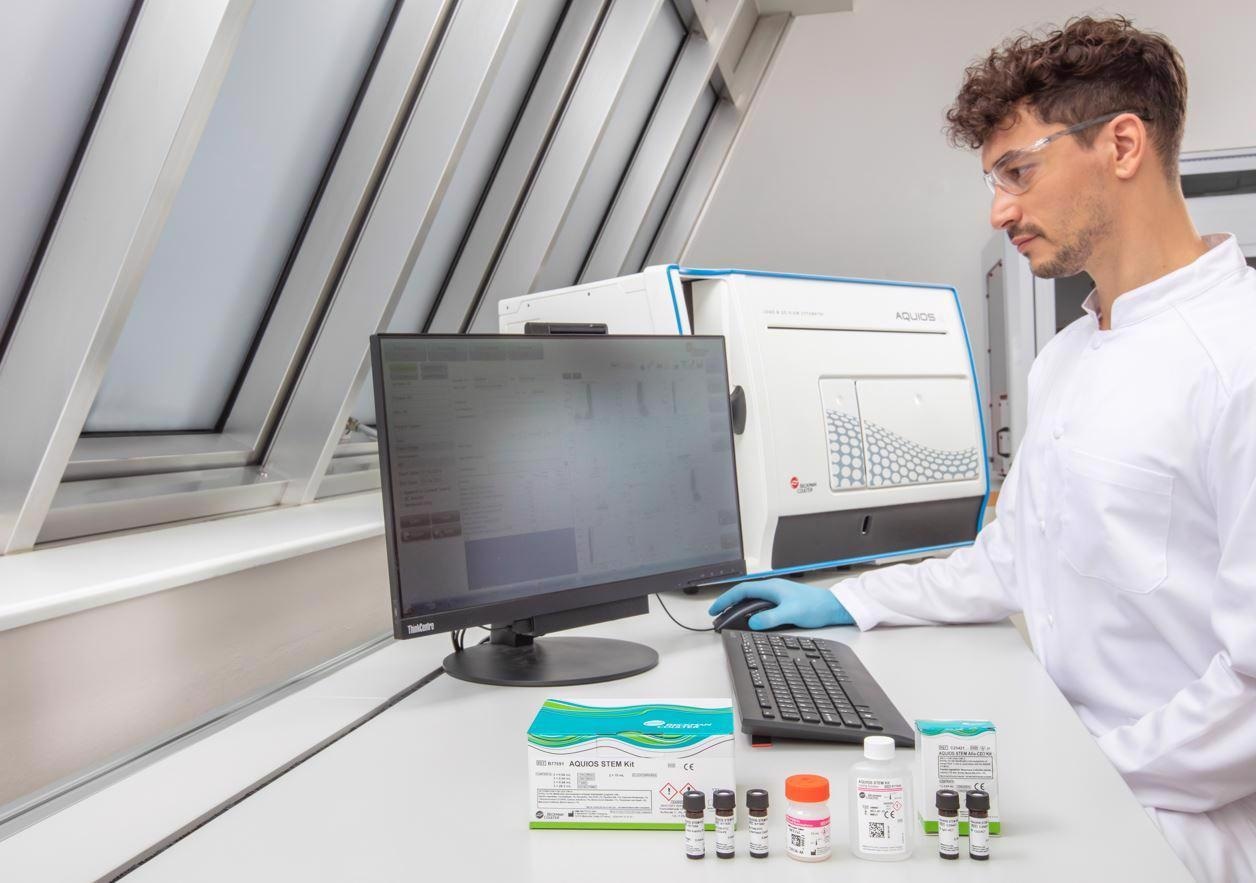Creating the industry’s first stem cell analysis update in nearly 25 years, Beckman Coulter Life Sciences – a global leader in laboratory automation and innovation – launches an evolution of the gold standard in hematopoietic stem cell enumeration, the AQUIOS STEM System.

Image Credit: Beckman Coulter Life Sciences
The AQUIOS STEM System enables complete automation to minimize hands-on time by 95%, reduces error-prone steps by 87.5%, and decreases turn-around time. The system was designed with leading experts in the field of clinical CD34+ enumeration, and is a modular approach to automated and IVD-certified analysis of CD34+ hematopoietic stem and progenitor cells.
The advancement comes as more than 100,000 stem cell transplantations are expected to be performed this year.
For many patients this is the last treatment option, so we know that timely and accurate diagnostic information is perhaps more critical than ever. The success of a stem cell transplantation largely depends on the number of viable stem cells, and we designed the system to improve efficiency without compromising accuracy, all of which can make a difference in patient outcomes. Stem cells can save lives, and we’re excited we can make a difference by helping to accelerate analyzing and enumerating viable cells.”
Dr. Andreas Böhmler, Director of Strategic Marketing for Clinical Solutions
The system runs on the AQUIOS CL Flow Cytometer, the first true load-and-go flow cytometer that combines sample preparation and analysis in one compact platform. Easy to use and easy to train, the AQUIOS STEM System brings stem cell enumeration closer to where it belongs, the patients.
Full traceability is enabled by barcoded vials to ensure a comprehensive audit trail and simplify quality management. A single tube loader also allows for priority treatment of emergency samples, enabling laboratory staff to handle urgent requests. The system can reduce the need for laboratory developed tests (LDTs), fostered by a flexible IVD assay setup, including three different validated panel options and innovative automated algorithms, allowing labs to maintain compliance regardless of the guidelines they follow.
The first successful stem cell transplantation took place 65 years ago. As laboratory workflows and needs continue to evolve, adaptability is key, and the AQUIOS STEM System is the first stem cell analysis advancement in nearly 25 years.
In all test case scenarios, the AQUIOS STEM System required substantially less hands-on time than the predicate method. For a typical 5-day work week with 10 specimen samples per day, the AQUIOS STEM System reduces manual workload by approximately 6 hours, allowing labs to allocate resources more efficiently. In addition, the AQUIOS STEM System reduces the overall turnaround time from sample preparation to patient result, which is essential for a time-critical test such as CD34+ enumeration.
The AQUIOS STEM System, comprised of AQUIOS STEM Software for the AQUIOS CL Flow Cytometry System, AQUIOS STEM-Kit Reagents, AQUIOS STEM CD34 Control Cells and Flow-Check Fluorospheres, is an in vitro diagnostic (IVD) medical device intended to be used by laboratory professionals for the detection of parameters in the most used specimen types.